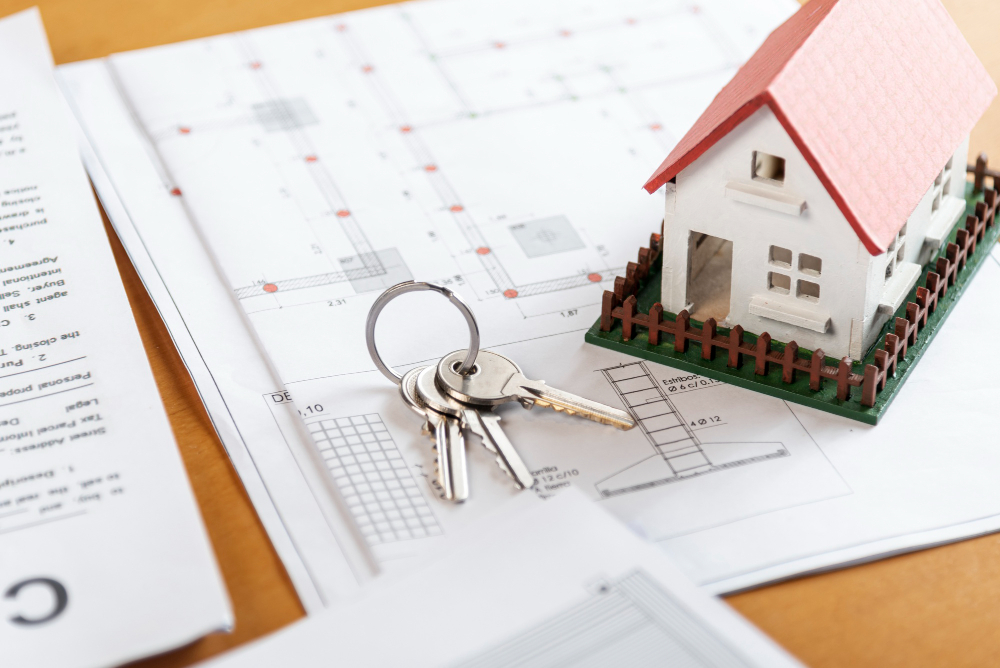

The commercial real estate market is projected to reach $118 trillion in 2024, with consistent growth continuing at an annual rate of almost 3% through 2028, reaching $133 trillion.
To ensure such a steady growth of the sector, it’s crucial to ensure real estate transactions are properly executed. For this, real estate due diligence is conducted.
What is due diligence in real estate? What does it involve? What documents to review and what procedures to follow? Find the answers in the article along with a comprehensive due diligence checklist.
What is real estate due diligence?
Commercial real estate due diligence (CRE due diligence) is a process of investigation and analysis conducted by potential buyers, investors, or lenders before completing a commercial real estate transaction. It involves examining various aspects of a property to assess its suitability, risks, and potential for investment or development.
Here are the key objectives of real estate due diligence:
- Risk identification. It identifies potential risks associated with the property, such as legal issues, environmental concerns, or zoning restrictions.
- Financial analysis. It evaluates the financial viability of the investment by assessing factors like income potential, operating expenses, and potential returns.
- Legal compliance. It ensures that the property complies with all relevant laws and regulations.
- Property condition assessment. It assesses the physical condition of the property, including its structural integrity, mechanical systems, and maintenance history.
- Market analysis. It analyzes the local real estate market to understand trends, demand, competition, and growth potential.
- Documentation. It gathers and reviews relevant documents such as leases, permits, surveys, and inspection reports to verify information and uncover any differences or inconsistencies.
Real estate due diligence differs from other types of due diligence in several ways:
- Scope. It focuses specifically on the investigation of a property’s physical, legal, and financial aspects, whereas other types of due diligence may cover other areas such as financial transactions, legal agreements, or corporate governance.
- Specialized knowledge. Real estate due diligence often requires specialized knowledge in areas such as property law, environmental regulations, construction, and market analysis, which may not be necessary for other types of due diligence.
- Longer timeframe. Due to its complexity, real estate due diligence typically may take longer to complete.
- Collaboration. Also, it often involves collaboration among various professionals such as attorneys, appraisers, engineers, environmental consultants, and financial analysts to assess different aspects of the property.
Residential real estate due diligence
There’s another type of real estate due diligence — residential. It’s different from commercial real estate due diligence in several ways. Firstly, it typically focuses on individual homes or multifamily properties, while commercial due diligence involves larger, income-generating properties such as office buildings, retail centers, or industrial complexes.
Secondly, the legal and regulatory complexities in commercial real estate, such as zoning laws, environmental regulations, and lease agreements, require a more specialized approach compared to residential properties.
Additionally, the financial analysis in commercial due diligence may involve complex modeling techniques and considerations of potential cash flows, vacancy rates, and cap rates, which aren’t common for residential due diligence.
Lastly, the stakeholders involved in commercial real estate transactions often include institutional investors, developers, and corporate tenants, compared to residential transactions involving individual homeowners.
Due diligence process in real estate
The due diligence period in real estate involves the following steps:
- Document review. Gather and review all relevant documents related to the property, including titles, deeds, surveys, zoning records, environmental reports, leases, financial statements, and any other legal or regulatory documents.
- Physical inspection. Conduct a thorough physical inspection of the property to assess its condition, including the building structure, systems (electrical, plumbing, heating, ventilation, air conditioning), grounds, parking areas, etc.
- Financial analysis. Evaluate the financial aspects of the property, including rental income, expenses, operating costs, property taxes, insurance, and potential for future cash flow. This analysis may involve financial modeling and projections.
- Legal assessment. Review all legal aspects of the property, including title searches, easements, encumbrances, liens, zoning regulations, permits, and any pending litigation or legal issues that may affect the property’s ownership or use.
- Environmental assessment. Conduct environmental assessments, such as Phase 1 and 2 environmental site assessments, to identify any existing or potential environmental liabilities or risks associated with the property.
- Market analysis. Evaluate the property’s location, market demand, competition, trends, and potential for future growth or depreciation to assess its long-term viability and investment potential.
- Negotiation. Based on the due diligence process findings, negotiate any necessary adjustments to the purchase agreement, address issues, and resolve any concerns before proceeding with the transaction.
Real estate due diligence checklist
Below is a comprehensive real estate due diligence checklist covering various aspects of the process:
1. Legal due diligence
Goal: Ensure the legitimacy of the property’s ownership and adherence to legal requirements.
- Zoning regulations. Verify that the property complies with local zoning regulations.
- Permits and approvals. Confirm that all necessary permits and approvals are in place for current and past construction or renovations.
- Encumbrances. Identify any easements, restrictions, or encumbrances affecting the property.
- Legal compliance. Ensure compliance with building codes, environmental regulations, and other relevant laws.
- Pending litigation. Check for any pending lawsuits or legal disputes involving the property.
2. Financial due diligence
Goal: Analyze property financials for accurate valuation and risk assessment.
- Income and expenses. Verify income, expenses, taxes, and cash flow against provided statements.
- Rental agreements. Obtain copies of all current leases and rental agreements.
- Rent roll. Analyze the rent roll to assess tenant occupancy and rental income.
- Operating costs. Review utility bills, maintenance records, and other operating expenses.
- Property taxes. Verify current and past property tax assessments.
- Insurance. Confirm that adequate insurance coverage is in place for the property.
3. Physical or land due diligence
Goal: Evaluate property condition and identify potential issues affecting value and safety.
- Building inspection. Conduct a comprehensive inspection of the building structure, systems, and components.
- Environmental assessment. Perform environmental site assessments to identify any environmental risks or liabilities.
- Site inspection. Inspect the grounds, parking areas, landscaping, and any other exterior features.
- Code compliance. Ensure that the property meets all applicable building codes and safety standards.
- Accessibility compliance. Verify compliance with accessibility requirements according to local laws, for example — the Americans with Disabilities Act (ADA).
4. Operational due diligence
Goal: Evaluate property management, staff, and systems to ensure efficient operations.
- Policy review. Review policies, procedures, and practices governing daily operations and maintenance.
- Staff performance evaluation. Assess skills, experience, and performance of property manager and staff.
- Systems evaluation. Assess the reliability, security, and efficiency of the systems and technology.
5. Market analysis
Goal: Understand market trends, competition, and opportunities to maximize property potential.
- Comparative property analysis. Compare the property with similar ones based on location, size, amenities, and rent.
- Comparable sales. Analyze recent sales of similar properties in the area to assess market value.
- Market trends. Evaluate local market trends, demand drivers, and supply dynamics.
- Economic indicators. Consider economic factors such as job growth, population trends, and infrastructure development.
6. Conclusion
- Summary and recommendations. Create a summary of findings and recommendations based on the due diligence process.
- Negotiation. Use the findings to negotiate any necessary adjustments to the purchase agreement.
- Closing. Ensure that all due diligence concerns are met before proceeding with the closing of the transaction.
Best practices for conducting efficient real estate due diligence
Here are a few recommendations on how to streamline and simplify real estate due diligence:
- Create a qualified team. Bring together a team of professionals with expertise in legal, financial, environmental, and technical aspects of real estate due diligence. This may include attorneys, accountants, engineers, environmental consultants, and property inspectors.
- Know the seller. Before engaging in a real estate transaction, thoroughly investigate the reputation and track record of the seller. This includes examining tax returns, service contracts, loan documents, litigation history, and other financial and operational records. Understanding the seller’s past dealings can negotiate better terms and assess if the deal is worth pursuing.
- Prioritize tasks and deadlines. Prioritize due diligence tasks based on their criticality and time sensitivity. Set clear deadlines for each task to ensure efficient progress and timely completion of the due diligence process.
- Communicate effectively. Encourage open communication and collaboration among all stakeholders involved in due diligence. Regularly update team members on progress, findings, and any issues or concerns that arise.
- Digitize the due diligence process. Use platforms like virtual data rooms to streamline the due diligence process. Data rooms provide a centralized and secure online repository for all due diligence documents, allowing users to access, share, and review information from anywhere.
Key takeaways
- Real estate due diligence is a critical process conducted before completing a commercial real estate transaction, involving investigation and analysis of various aspects of the property.
- The objectives of real estate due diligence include risk identification, financial analysis, legal compliance, property condition assessment, and market analysis.
- Due diligence differs between commercial and residential properties due to differences in complexity, legal and financial considerations, and stakeholders involved.
- A comprehensive real estate due diligence checklist covers legal, financial, physical, operational, and market aspects of the property.
- Best practices for efficient real estate due diligence include creating a qualified team, knowing the seller’s background, prioritizing tasks and deadlines, effective communication, and digitizing the process
Recommended for you


